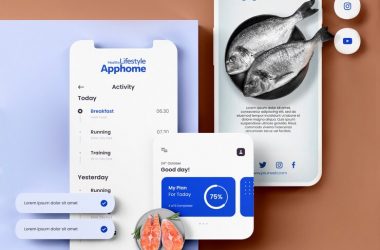Each quarter, CPC Strategy releases theirComparison Shopping Report, a compilation of data from more than 4 million clicks and more than $8 million in revenue. The report ranks the industry’s top shopping engines for online merchants based on significant metrics like overall traffic, revenue, conversion rate, cost of sale, average CPC, and merchant response ratings.
Ecommerce merchants can use this data to tailor their marketing budget to make more sales and increase product exposure on the sites that online shoppers frequently use to find great deals on products.
Here are the 10 best comparison shopping engines.
1. Google Shopping (CPC)
More than 5 billion searches happen on Google every year. Many of those retail specific searches happen through Google Shopping, a cost per click program. Google Shopping is the top performer highest traffic and conversion rate shopping site for merchants online – consistently generating more clicks and sales for retailers.
Following Google Shopping’s switch to a the paid Google Product Listing Ads / Google Shopping program, Google has lead shopping engine performance in nearly every significant ecommerce KPI.
During Q1 2014 Google Shopping drove the highest traffic, and revenue among the major shopping engines online. Google’s COS is the lowest of the paid Shopping engines (14.27 percent), and provides the simplest merchant tools for online advertisers.
Google Shopping switches to Google Shopping’s in August which positions Google to continue to dominate shopping engine performance. Retailers on Google Shopping should review the newGoogle data feed requirements before signing up for the program. Merchants can manually upload feeds or use an FTP to upload in bulk.
2. Shopzilla (CPC)
Shopzilla is a paid shopping site that highlights similar products from various retailers online. For merchants, Shopzilla features one of the easier bidding tools, and allows retailers to zero-bid, ($0.00) on poor-converting products.
As a Bizrate partner, Shopzilla merchants gain the benefit of Bizrate reviews – both on Shopzilla and Google. The third highest revenue producer among the shopping engines, Shopzila is a high converting converts at almost 4 percent. Shopzilla also supports bulk product feed uploads via an FTP.
3. PriceGrabber (CPC)
PriceGrabber is a paid comparison shopping site which features deals, coupons, and weekly specials. PriceGrabber has a no-minimum CPC bidding model, which allows retailers to penny-bid, or bid as low as $0.01 on products.
PriceGrabber is second only to Google for its low Cost of Sale (15.52 percent), and is a leading shopping engine for click traffic. Merchants using PriceGrabber also have the added advantage of sending their product lists to Yahoo Shopping.
4. Amazon Product Ads (CPC)
Amazon Product Ads (APA) are paid ads on Amazon.com , often found on product detail pages, search, buy boxes, and tower ads. Amazon Product Ads benefit from Amazon’s Marketplace traffic and brand recognition. However, unlike the Amazon Marketplace, Amazon Product Ads links shoppers to a merchant’s external web store for transactions, adding retargeting and branding value for retailers.
Amazon Product Ads are a viable option for retailers who already have listings on the Marketplace, or who want to list on Amazon without subscribing to the Marketplace program.
5. eBay Commerce Network (CPC)
The eBay Commerce Network (formerly Shopping.com) is a paid comparison shopping site. For retailers, the eBay Commerce Network CPC bidding model provides greater flexibility with category level bids.
For the second quarter in a row, the eBay Commerce generated the second highest traffic of all the shopping engines – in part because merchant listings on the eBay Commerce Network also receive exposure on Google Shopping.
6. Become (CPC)
Become is an online shopping engine which aggregates research on products including expert reviews, consumer reviews, articles, buying guides, and forums. A smaller Shopping Engine, Become impressively beat out both Nextag and The Ebay Commerce Network with 18 percent COS.
7. Nextag (CPC)
Nextag is a paid comparison shopping site that allows businesses to list physical products online- including tickets, real estate, and travel plans. Prior to Google Shopping, Nextag generated the highest revenue and conversions for paid Comparison Shopping Engines.
Although Nextag’s surpasses the majority of the Shopping Engines with a 20.66 percent COS , the engine converts at almost 3 percent.
In addition to category and product level bidding Nextag’s CPC bidding model allows merchants to bid at the brand level.
8. Bing Product Ads (CPC)
Q1 2014 marks the last quarter for free Bing Shopping. Bing Product Ads are now available for online merchants, and work on a cost per click (CPC) basis, similar to Google Shopping. Bing Product ads appear on Bing search with product details and images.
9. Pronto (CPC)
Pronto makes it easy for shoppers to find current sales and facilitates buying popular products (e.g., HDTVs) with buying guides. Pronto surpassed all but one Shopping Engine with almost 4 percent conversion rate during Q1.
This CSE allows for whole feed processing via an FTP.
10. Amazon.com (% Sale)
Amazon.com is an online Marketplace, not a comparison shopping engine. However, it warrants a place on this list as a large source of ecommerce traffic for online merchants, a shopping site where consumers can sort products for purchases. Amazon’s fee structure is very different from CSEs, in addition to how retailers can sell on Amazon.
http://searchenginewatch.com/article/2097413/The-10-Best-Shopping-Engines










